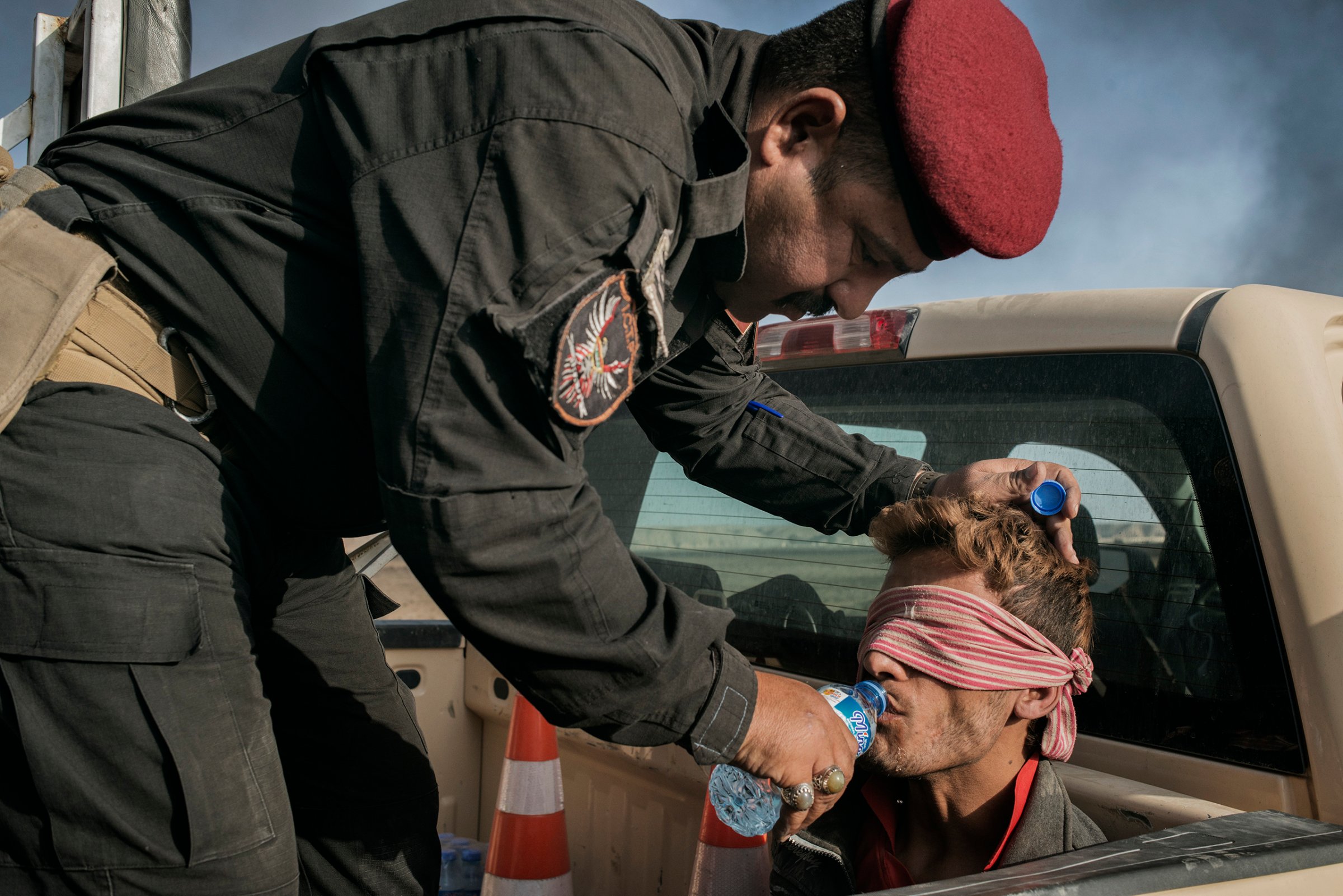
Iraqi special operations forces entered Mosul this week for the first time since the city was seized by ISIS in June 2014. The progress marks the opening of a critical phase of the battle for Mosul, once Iraq’s second-largest city and now the Islamic State’s crown jewel. After months of fighting in the countryside and two weeks of intense battles on the city’s outskirts, Iraqi government troops find themselves engaged in bloody urban fighting that could go on for weeks or even months as the push to dislodge the militant group meets ever stronger resistance.
Emanuele Satolli, an independent Italian photographer based in Istanbul, has been on the ground in northern Iraq for most of the offensive. Satolli flew into the Kurdish-controlled northern Iraqi city of Erbil and traveled around the area with a fixer and driver, another photographer and a journalist. In recent days he stayed close to Iraqi forces as they inched toward Mosul. Motivated by a “desire to witness and recount what people living under ISIS have been through,” he captured compelling scenes from the front and the periphery—as loud as a controlled IED blast and as quiet as an Iraqi soldier resting in an armored vehicle, his foot dangling out the window. (One picture, showing men accused of being ISIS militants or sympathizers as they cower before interrogation by a local Sunni militia, appears as a spread in TIME’s Nov. 14 issue.)
“I’m not just interested in covering the fight. When it’s allowed I take pictures in other circumstances not related with the front line,” he said in an email sent from the Gogjali district on Mosul’s eastern edge. “I’m interested in the people who are involved in a conflict but who are not playing an active role.”
Satolli works to illustrate human lives overturned by war: the families who fled the fighting by boat, car or foot; the damaged, once-occupied homes scrawled with ISIS graffiti; the group of Christian girls praying after an improvised Sunday Mass at a shopping mall in Erbil.
The photographer is well aware of the dangers that he and others in the field are facing as the battle continues in Iraq, the third-deadliest country for journalists this year. Two local journalists were killed early on during the offensive and several foreign journalists have been injured. Iraqi and Kurdish forces have also incurred losses.
Satolli says this is “not at all a conventional war.” The ruthless nature with which ISIS fights its enemies, inflicts pain on civilians and defends its territory is clear and terrifying. “Most of the ISIS fighters are ready to die and they are willing to use all kinds of tactics to hit the enemy.” IEDs are planted along the streets. Booby traps are hidden inside homes and other structures. Bombs are embedded in cars and trucks. Snipers take aim.
To protect himself as best he can, Satolli wears a helmet and flak jacket, and approaches each decision as carefully as possible. “You try to get as much information as you can from other journalists, people who have been there longer than you, the army and locals with whom you start building some relationship, bit by bit,” he says. “And then there’s a level of precaution that your instinct doesn’t allow you to drop.” Still, Satolli adds, in Iraq there’s no way to be fully certain of what you hear or see: “There’s a factor of unpredictability that is impossible to control.”
Emanuele Satolli is an Italian journalist and photographer based in Istanbul. His previous work, The World’s Deadliest Drug: Krokodil’s Legacy, was published on LightBox. Follow him on Instagram @emanuelesatolli.
Andrew Katz, who edited this photo essay, is TIME’s International Multimedia Editor. Follow him on Twitter @katz.
Jared Malsin is TIME’s Middle East Bureau Chief, based in Istanbul. Follow him on Twitter @jmalsin.
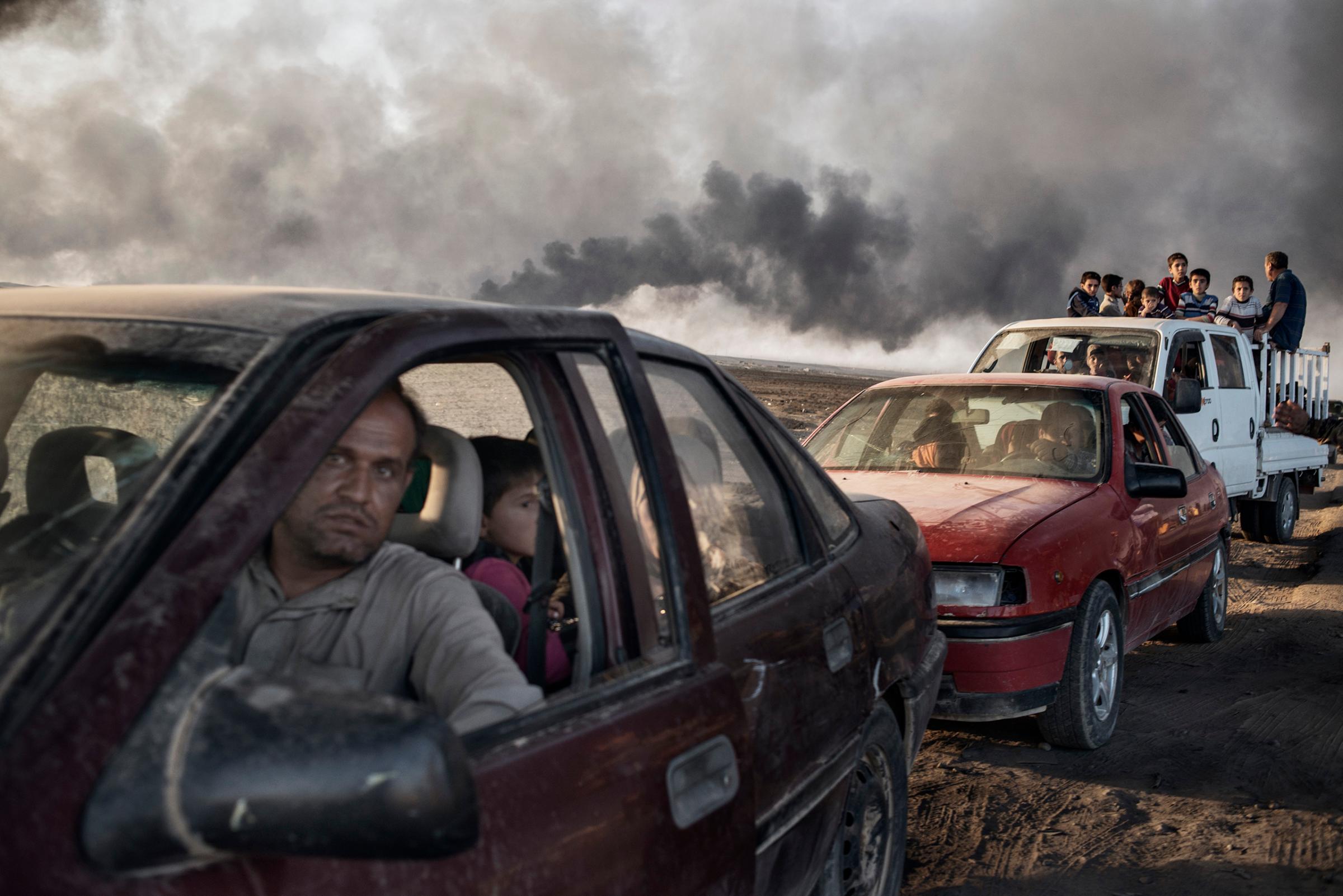
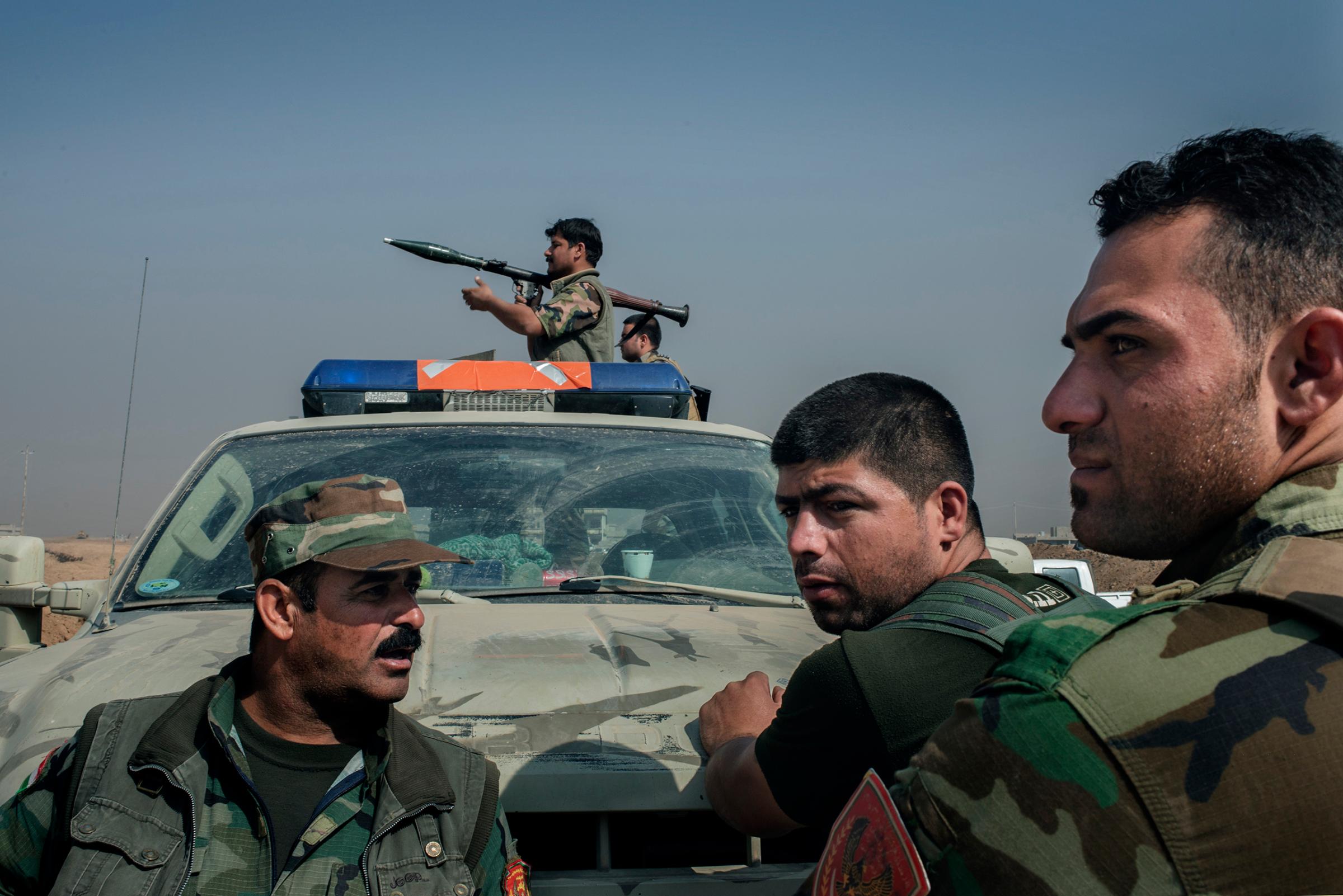
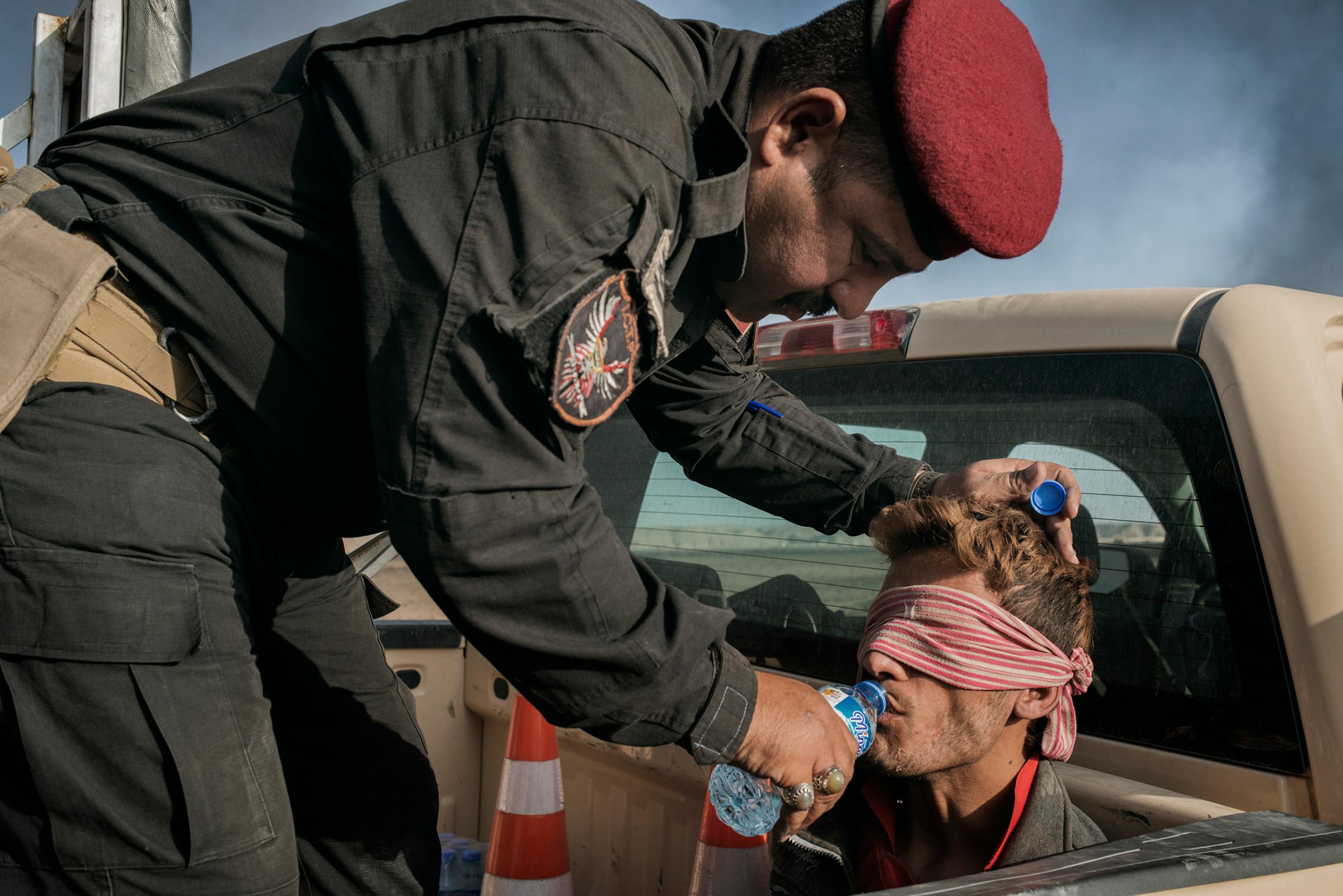
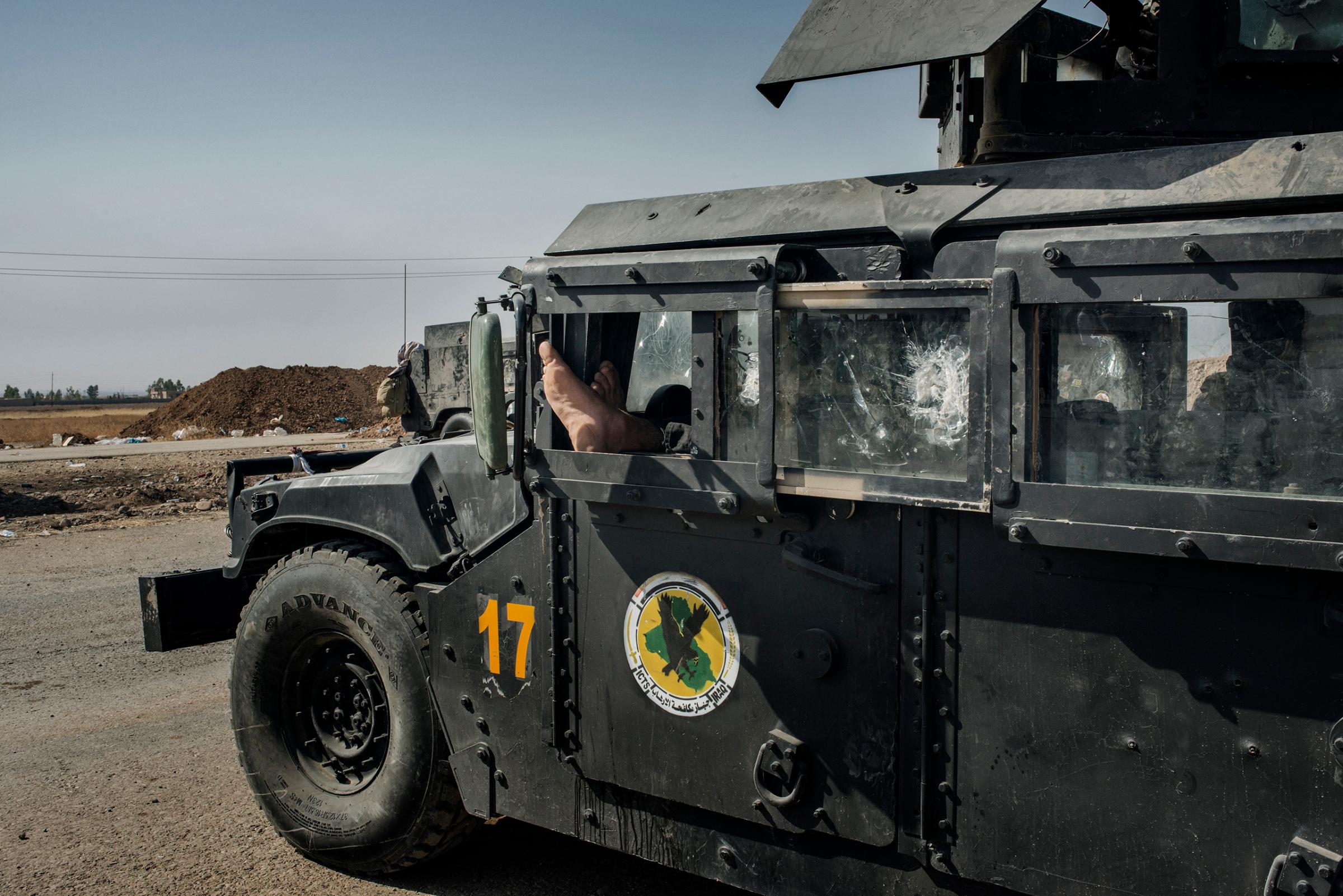
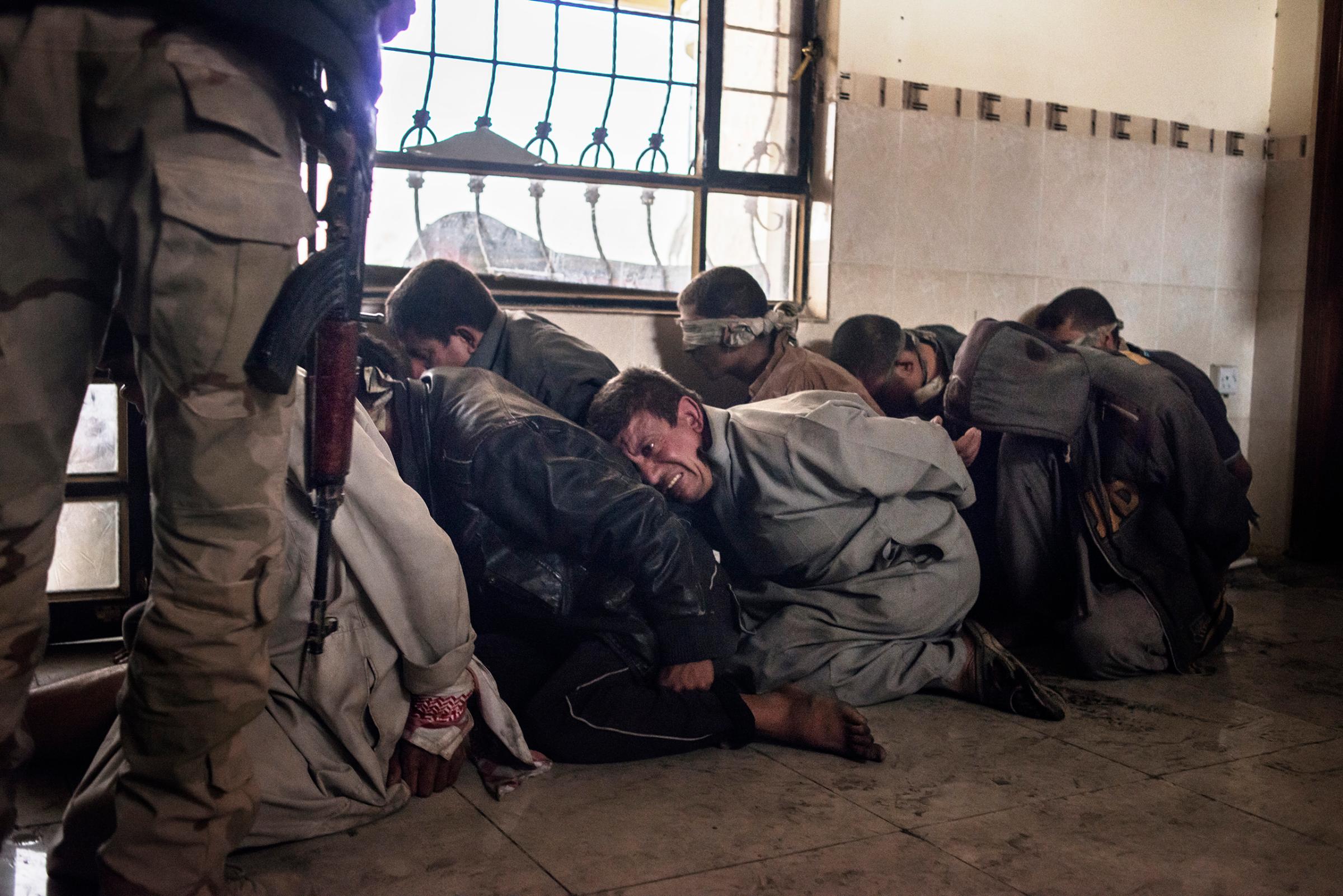
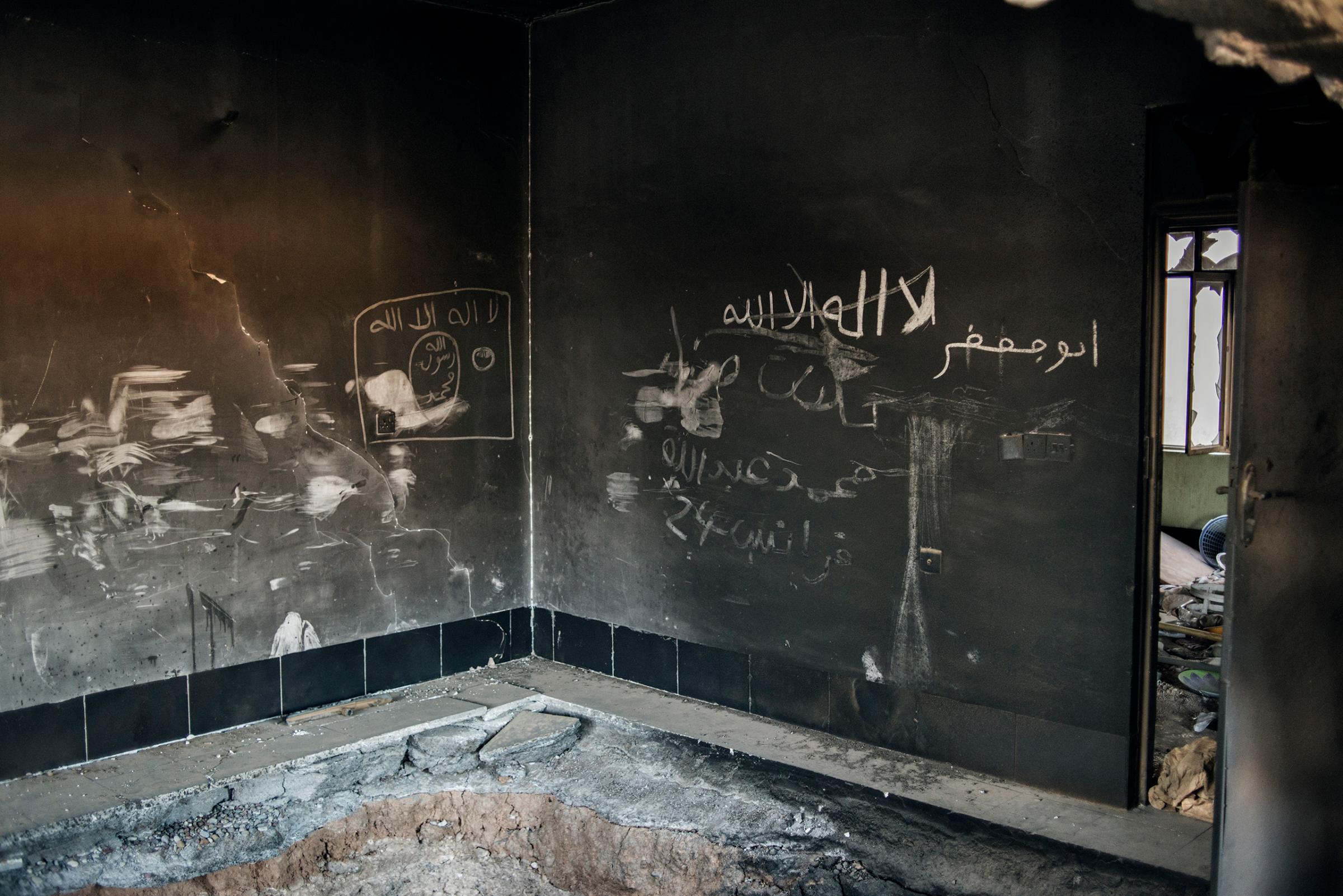
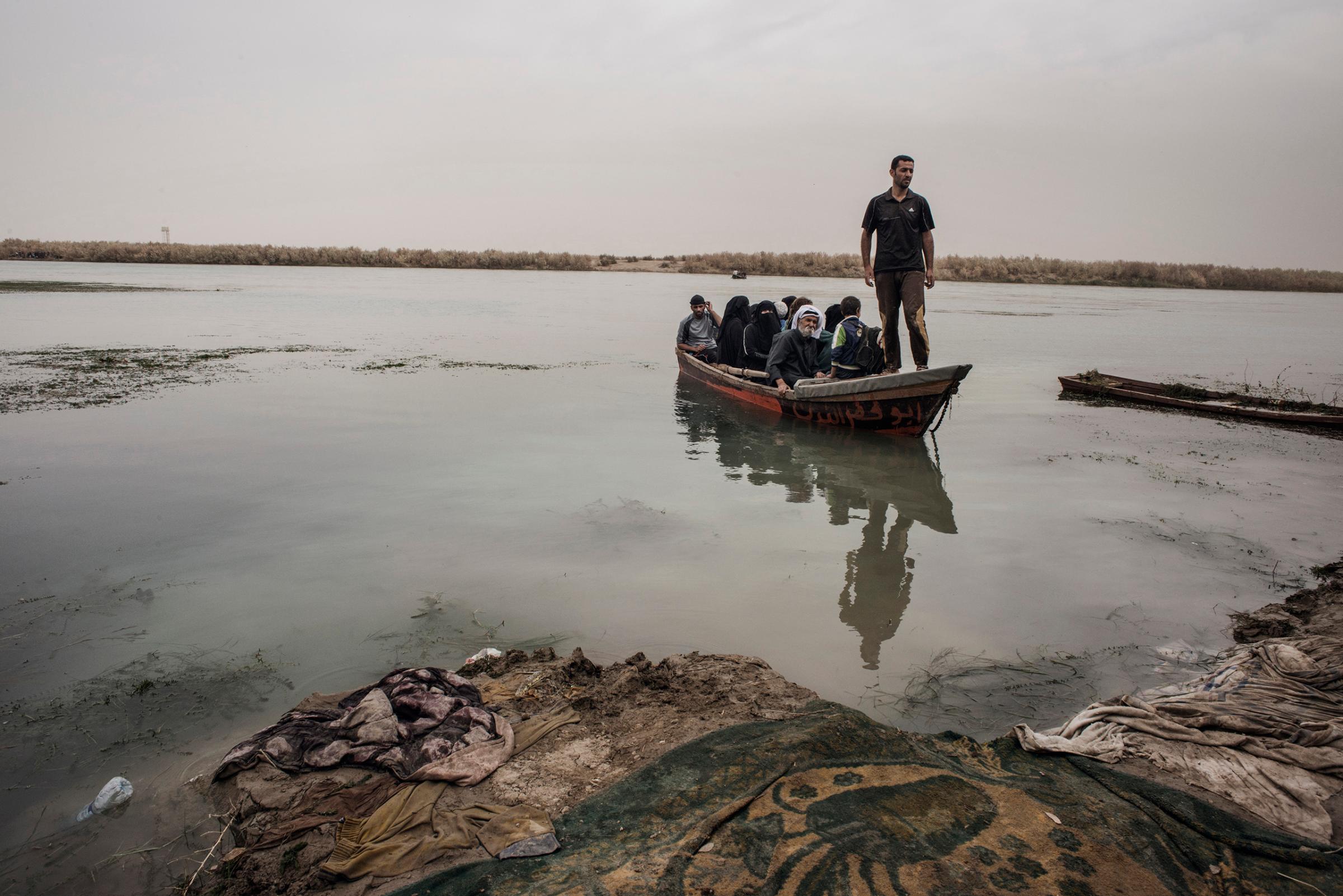
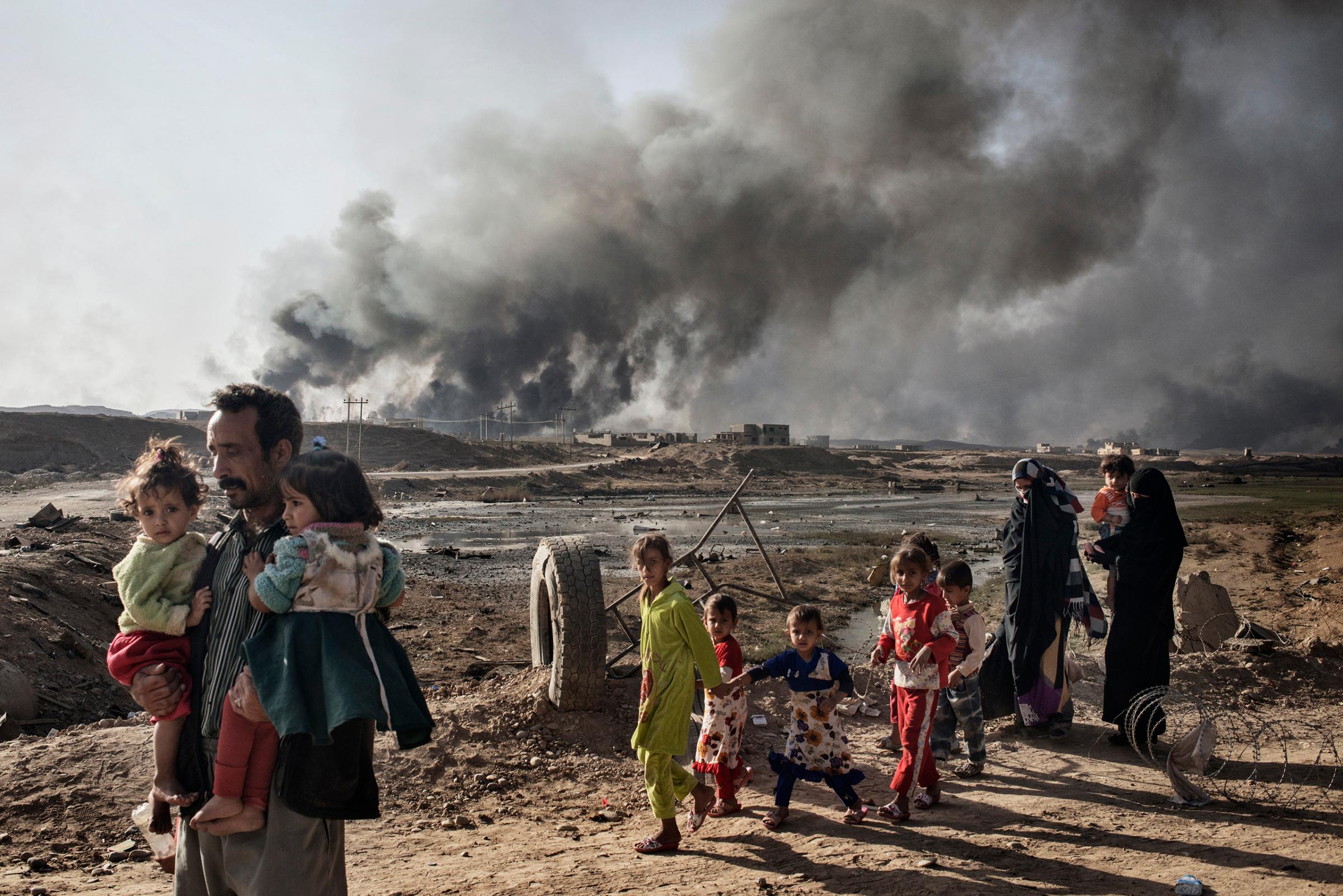
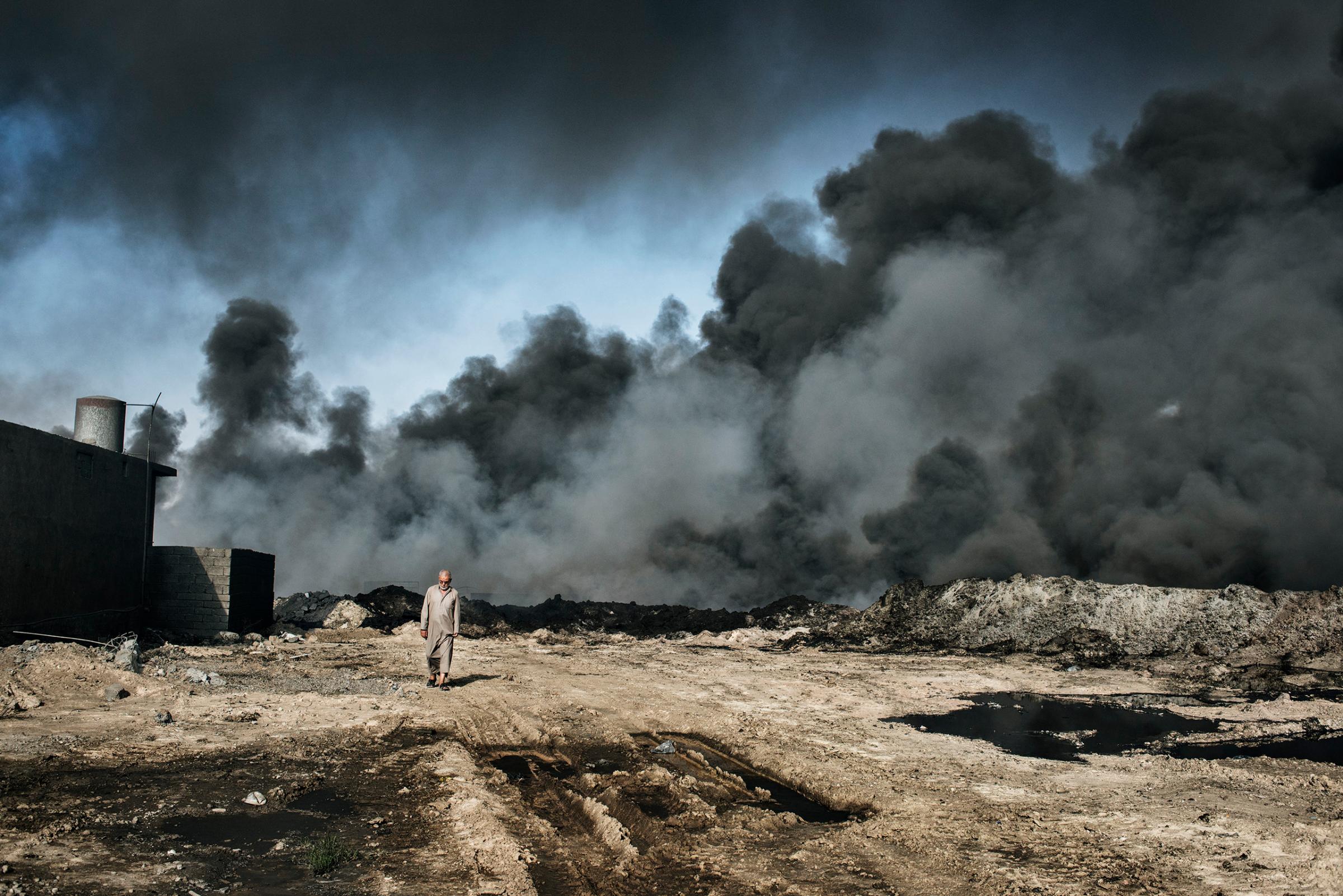
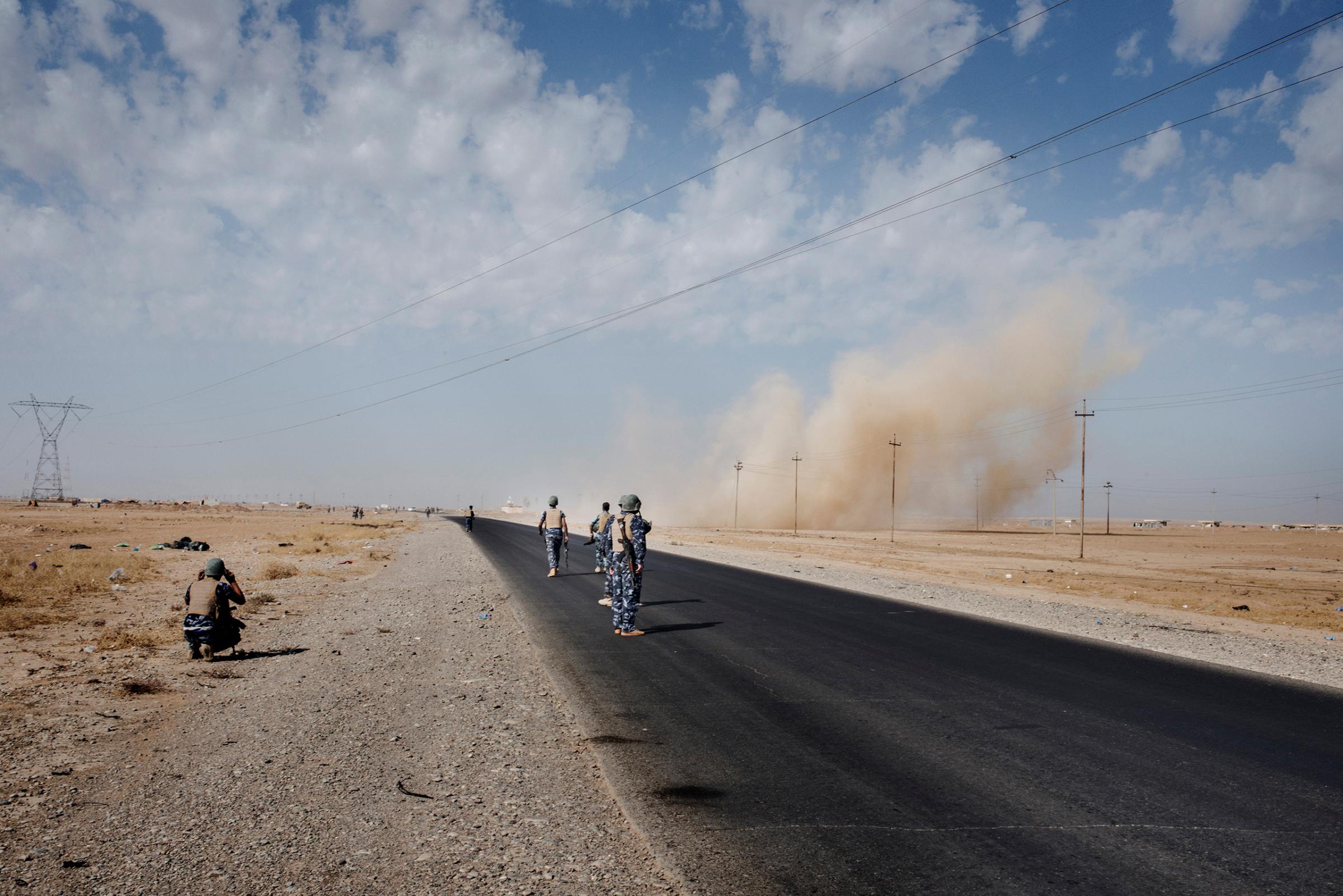
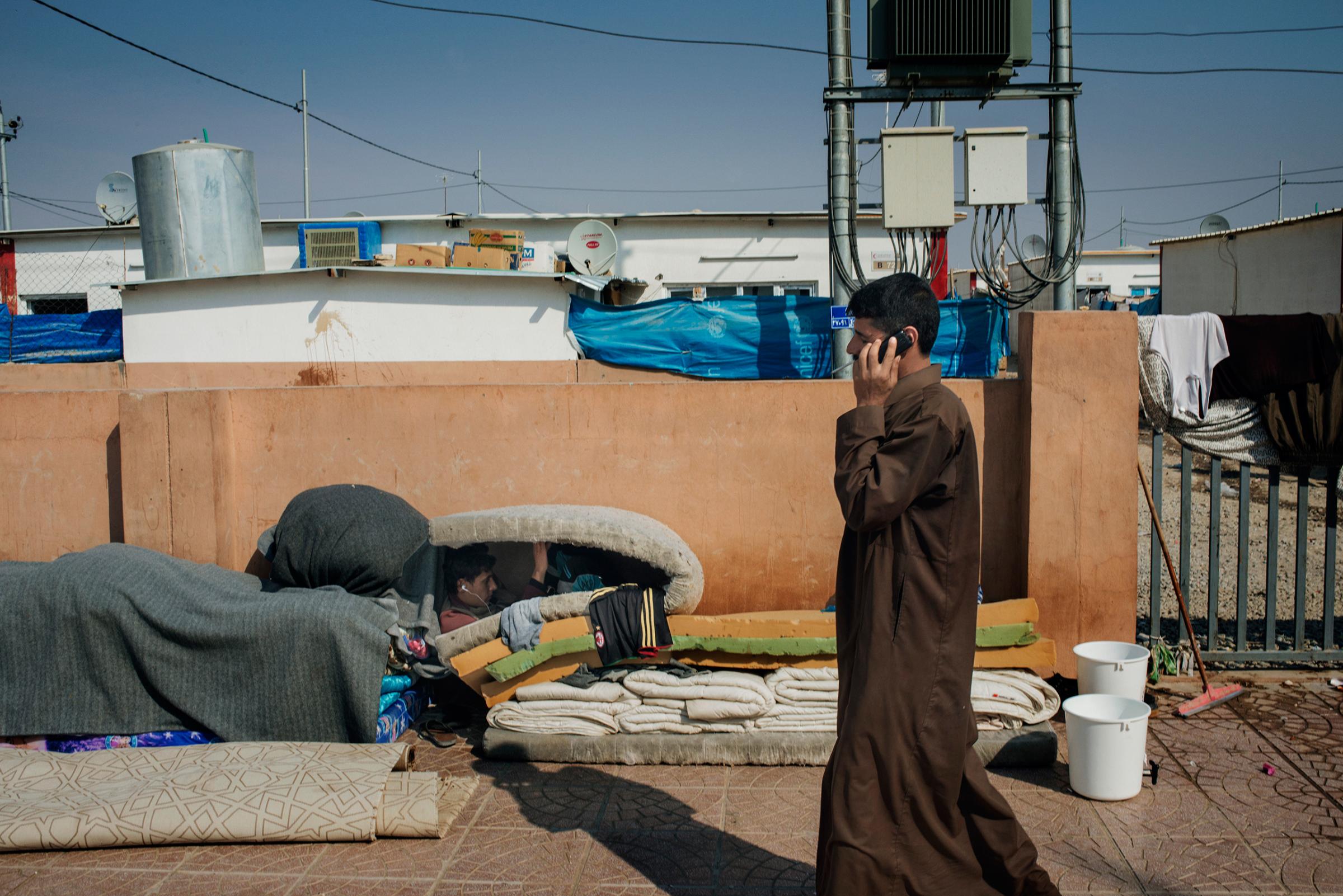
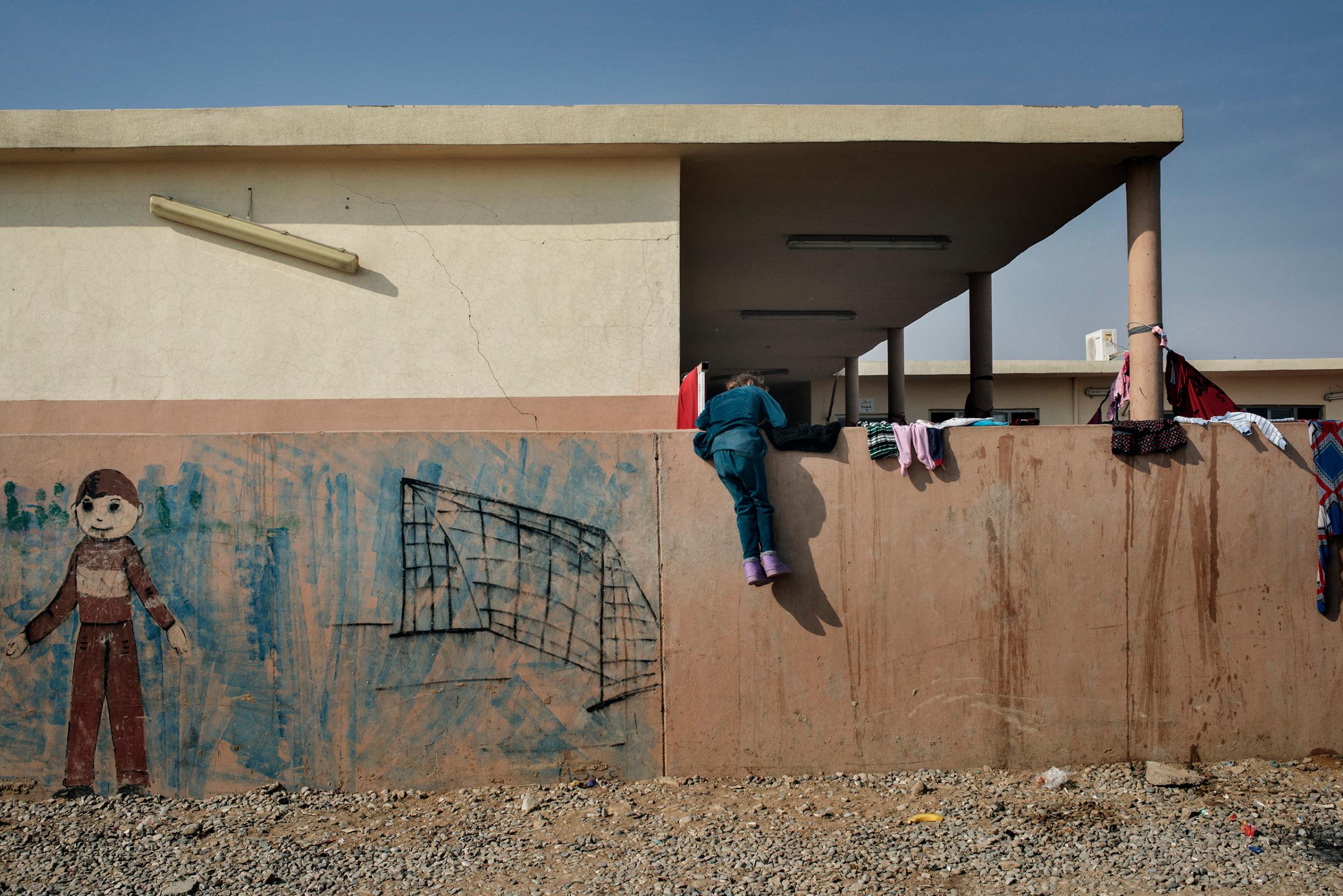
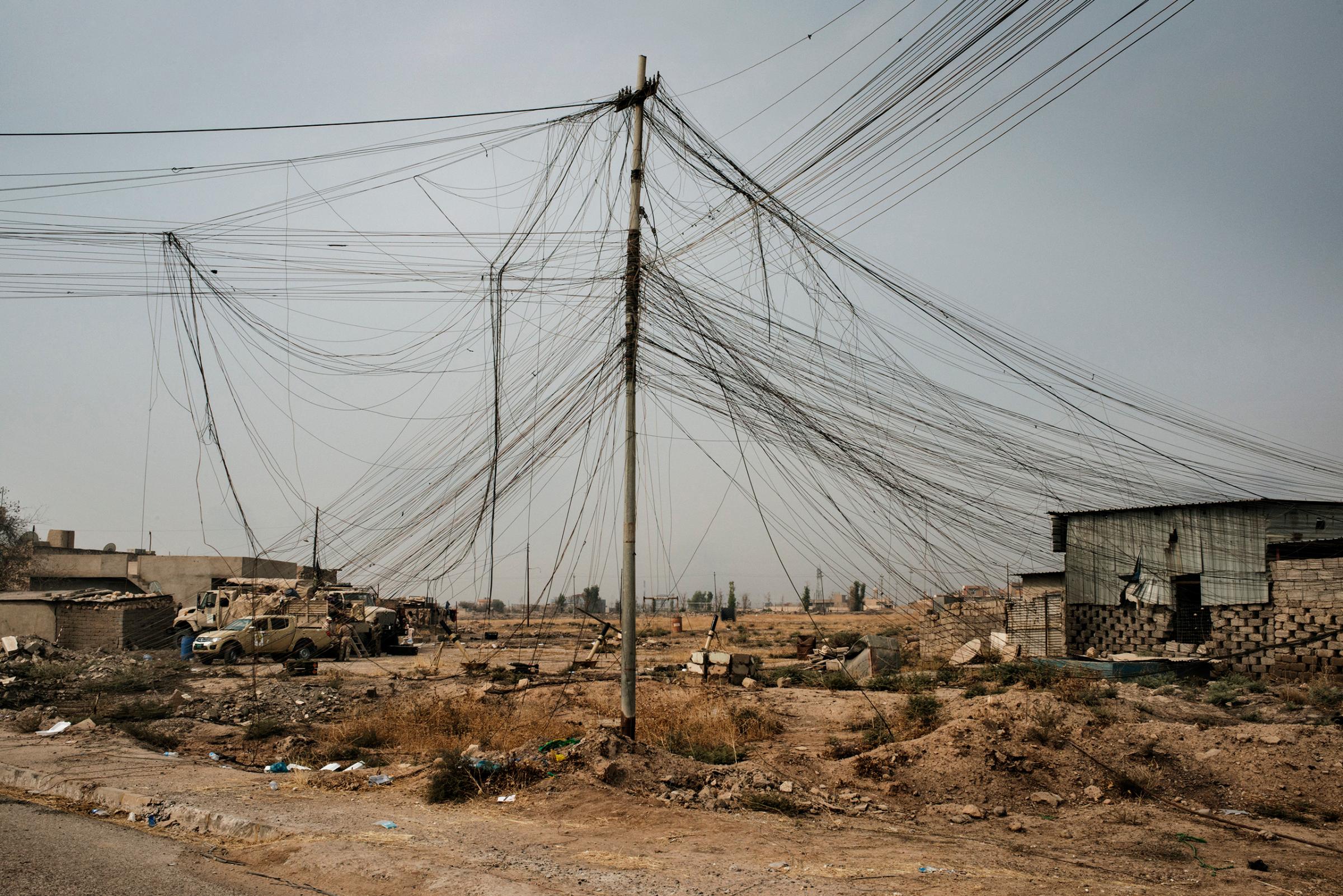
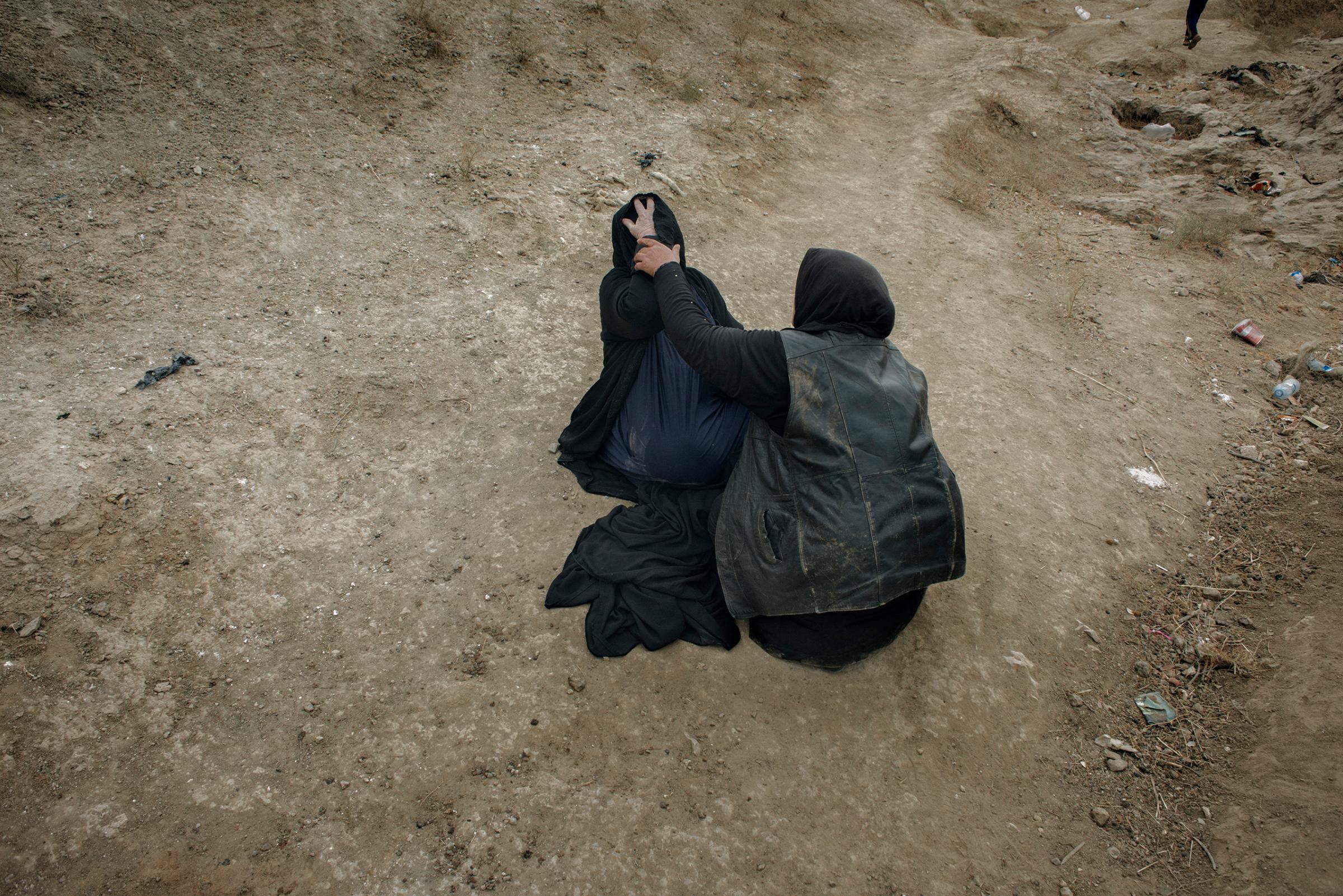
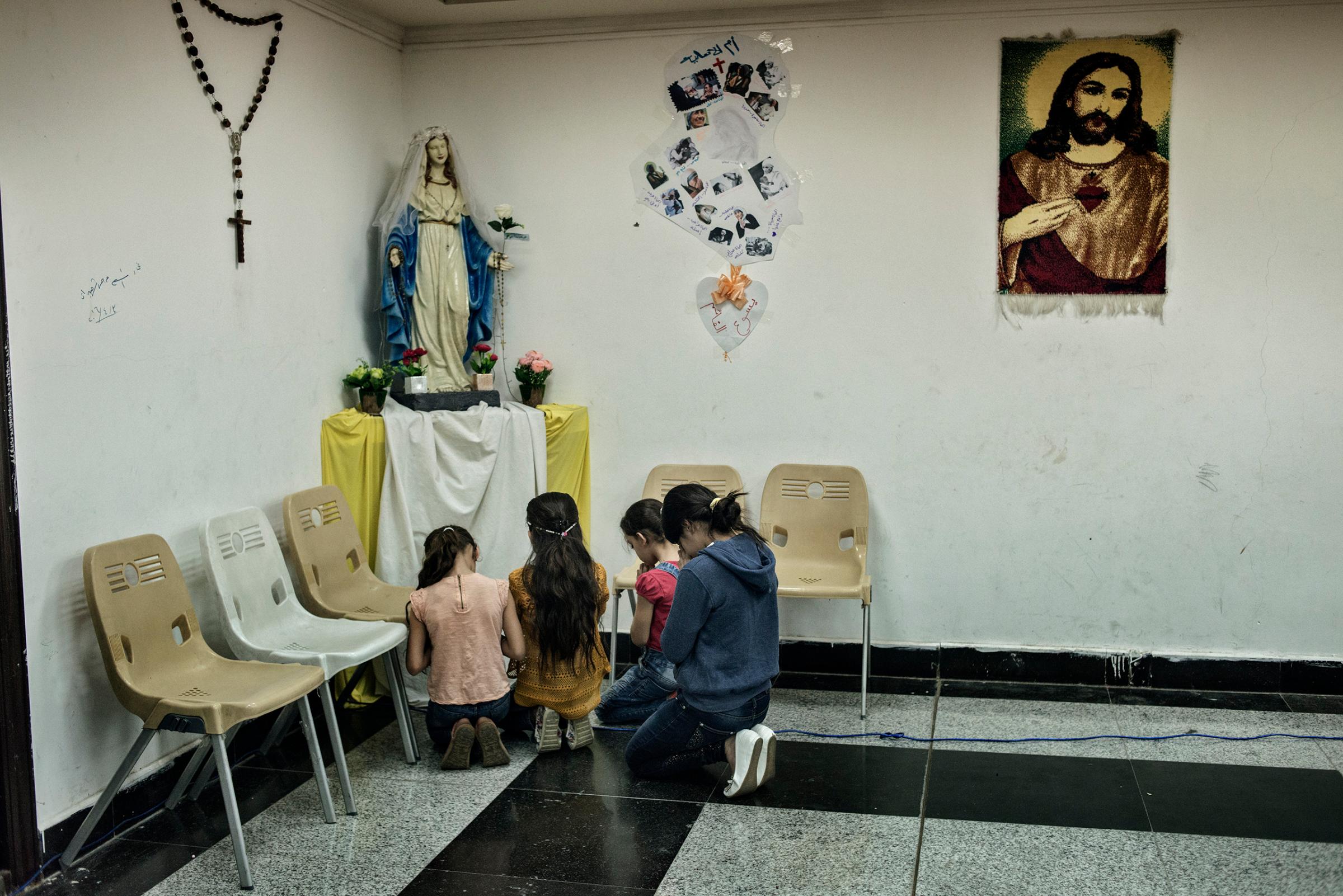
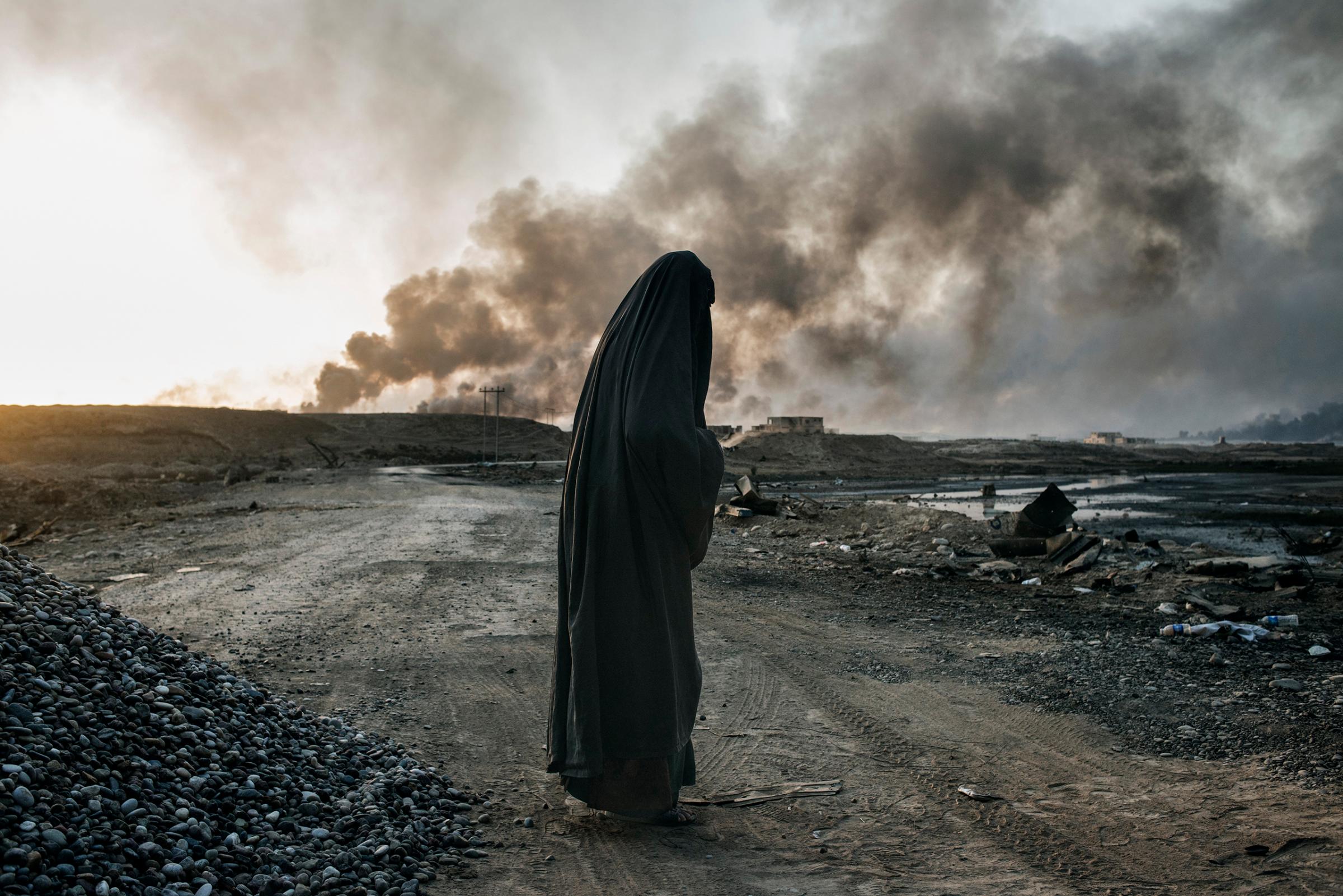
More Must-Reads from TIME
- Donald Trump Is TIME's 2024 Person of the Year
- Why We Chose Trump as Person of the Year
- Is Intermittent Fasting Good or Bad for You?
- The 100 Must-Read Books of 2024
- The 20 Best Christmas TV Episodes
- Column: If Optimism Feels Ridiculous Now, Try Hope
- The Future of Climate Action Is Trade Policy
- Merle Bombardieri Is Helping People Make the Baby Decision
Contact us at letters@time.com